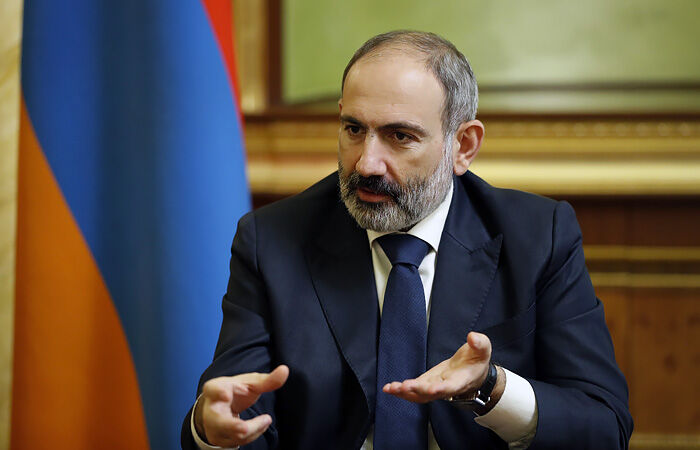As the Armenian constitution dissolves if parliament fails to elect a new prime minister within two one-week time, parliamentary parties have agreed to pave the way for early elections on June 20 by not nominating a candidate for prime minister.
But an agreement on holding early elections has not been reached easily. On the one hand, Armenian President Armen Sarkissian, who determines the timing of the elections, has in recent weeks refused to sign amendments to the election law because he does not consider early elections to be appropriate in the current situation, and on the other hand, opponents of Pashinyan believed that announcement of his resignation from power was a dramatic move to deceive public opinion with an aim of eliminating the protests and creating a rift among the opposition group.
In any case, by announcing his resignation from the post of Prime Minister, Pashinyan has shown his serious determination to challenge the opposition; because some polls estimate his popularity at around 40 percent, which means that Pashinyan hopes to form a coalition government with the entry of aligned parties into the parliament.
But in the less than 48 days before the election, two main questions come to the fore, the answer to which could reflect the conditions prevailing in Armenia. First, who is Pashinyan’s main rival in the elections? Second, will Armenia’s defeat by Azerbaijan in the 44-day war affect the election results?
Robert Kocharyan, the second president to hold power in Armenia from 1998 to 2008, has been named as Pashinyan’s most serious rival in the upcoming elections. Some experts have attributed Kocharyan’s close and long-standing ties to Putin as his trump card, believing that because of Moscow’s support, the election will turn into a bipolar rivalry between Pashinyan and the Kocharyan. However, the likelihood of Putin’s serious and official support for Kocharyan seems low for a specific reason. Pashinian’s main slogan for calling on the people to protest against former President Serzh Sargsyan, which led to his ouster, was “fight against corruption”; a slogan that was highly acclaimed by the people. Pashinyan believed that former officials had personally used a large part of the government budget, especially the budget allocated to strengthen the Karabakh region, and even the aid collected by Armenians from around the world. He cites Robert Kocharyan and Serzh Sargsyan, two former presidents (known as the Karabakh people spectrum) who have been in power in Armenia for a total of 20 years. Under such circumstances, Putin’s direct support for Kocharyan could further hurt Moscow’s damaged image in the Armenian public opinion. If Robert Kocharyan enters the arena of parliamentary elections, one should expect heavy accusations to be exchanged and a fundamental challenge to be created between the two main poles of the elections. Pashinyan will maneuver on the financial and structural corruption during Kocharyan’s ten-year presidency and its continuation during Sargsyan’s rule, and Kocharyan will also focus on Pashinyan’s inability to run the country and interact constructively with other countries, losing Azerbaijan in the war and losing parts of Karabakh. If Kocharyan does not enter the election arena, the opposition group will not have another efficient and well-known figure who will be able to face Pashinyan and he can definitely be considered the winner of the election. It should not be forgotten that Pashinyan, with his years of experience in the media and his direct presence among the people, has sufficient knowledge and the necessary tools to align public opinion with himself.
But the second most important and influential factor in the elections is the defeat of Armenia by Azerbaijan in last year’s 44-day war. The loss of Karabakh-owned territories, presence of thousands killed, wounded, captured, displaced and heavy military damage, as well as conclusion of a peace agreement that has created much ambiguity, can be the key point not only for this election but also for the life of Armenia. Certainly the opposition, as they have insisted on those issues during the six months since the war, will highlight Pashinyan’s inability to preserve the lost lands during the elections; but if public fortune accompanies Pashinyan and he is re-elected, he will send the message that Karabakh is not the main priority of the Armenian people. A message that sets the direction of Armenia’s future foreign policy and can create new equations in the region. In a general outlook, the current situation is assessed in favor of Pashinyan, and he understands this situation and accepts the risk of early elections. However, some experts do not consider widespread non-participation of the people in opposition rallies as endorsing or supporting Pashinyan. Rather, the main reason is frustration of the society with recent failure, the psychological shock of the society after the failure and also the unwillingness to repeat the experience of the Velvet Revolution of 2018. According to those experts, the recent reaction of residents of some cities in southern Armenia near the Iranian border who did not allow Pashinyan to hold rallies and speeches is assessed as a sign of his declining popularity.
However, to validate these analyzes, one has to wait until June 20 for the results of the Armenian parliamentary elections.










0 Comments